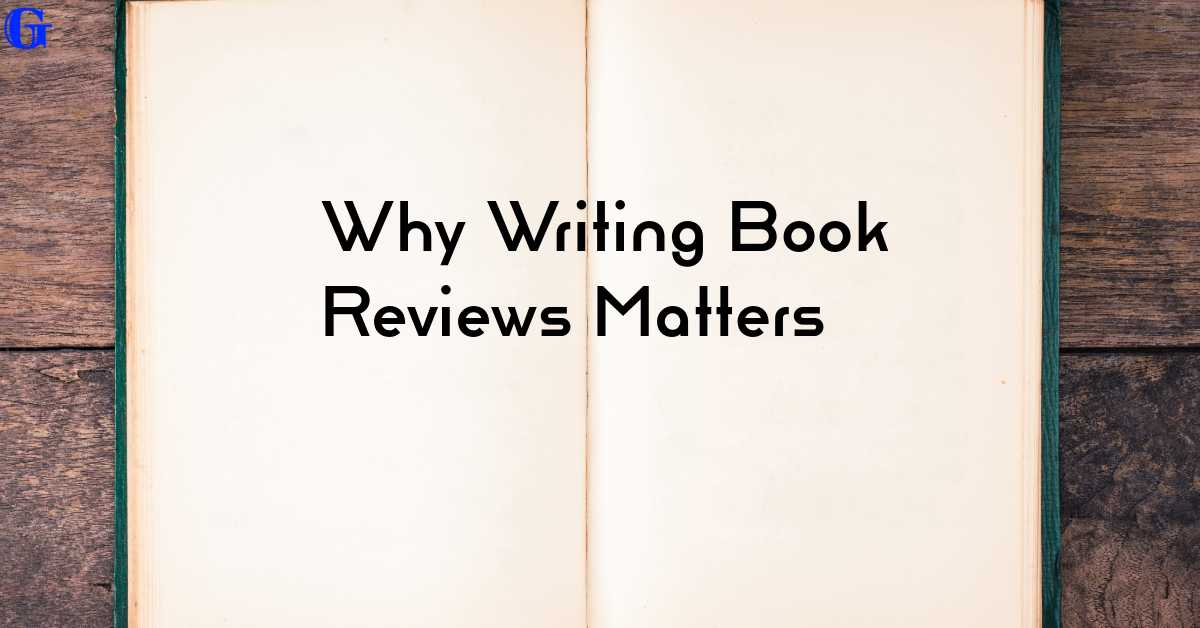How to Write a Book Review: Unlocking the Secrets in 2025

Table of Contents
Writing a Book Review: Key Elements
Writing a book review is an enriching task that combines analytical thinking with creativity. It’s not just about summarizing a book’s content but evaluating it from multiple perspectives to offer insights that resonate with potential readers. Book reviews have become vital tools for readers, writers, publishers, and educators. For readers, they serve as a guide to discover new stories or educational resources. For writers and publishers, reviews can be a reflection of how their work is perceived and a form of feedback that helps improve future publications.
Unlike casual opinions, a formal book review balances subjective impressions with objective analysis. It challenges you to consider not only what the book is about but also how well it achieves its purpose, whether it be storytelling, informing, or persuading. Writing an engaging book review also allows you to share your voice with a broader audience. When done correctly, a review can inspire curiosity, provoke thought, and even spark debates.
Additionally, book reviews contribute to literary culture. They create a bridge between authors and readers, offering a shared space for discussing ideas. Whether you’re critiquing a bestseller or reviewing an underappreciated gem, your input could significantly influence a reader’s choice or an author’s next steps. The process of writing a review can also deepen your understanding of literature and improve your analytical skills.
So, how do you craft a compelling book review? It’s about much more than stating whether you liked or disliked a book. It’s about dissecting its elements, appreciating its subtleties, and evaluating its overall impact. In this guide, we’ll break down the key elements of writing an outstanding book review—from preparation to structure and essential elements to include. Let’s dive into the art of crafting reviews that inform and inspire!

What Is a Book Review?
A book review is a detailed critique of a book’s content, style, and overall impact. It goes beyond a simple summary to analyze the author’s intentions, literary devices, and the book’s effectiveness in achieving its goals. In essence, a book review is a combination of evaluation and personal response. But what makes it different from other forms of literary critique?
Why Book Reviews Matter
Book reviews are essential in the literary ecosystem. They act as a map for readers exploring uncharted literary territories. For example, if you’re debating whether to read a 700-page historical novel, a well-written review can save you time by highlighting the book’s strengths and weaknesses. Similarly, academic readers rely on reviews to decide whether a book aligns with their research interests.
For authors, reviews are invaluable. They offer constructive feedback and help refine their craft. Reviews can also shape an author’s reputation; positive critiques often bolster credibility, while fair but critical reviews encourage growth. Additionally, reviews have a significant impact on book sales. Platforms like Amazon and Goodreads thrive on user-generated reviews that influence buying decisions.
For aspiring writers, writing reviews hones essential skills such as critical thinking, persuasive writing, and summarization. It’s a chance to engage deeply with a text and articulate your thoughts clearly, fostering a more profound appreciation for literature.
In short, book reviews matter because they connect creators and consumers, sparking meaningful conversations about ideas, stories, and perspectives. Whether written for personal enjoyment, academic study, or public platforms, book reviews are a vital part of the literary dialogue.
Read about nursing essay writing services on our blog.
Brief overview on the types of book reviews
Book reviews come in various forms, each tailored to a specific audience, purpose, or platform. Understanding these types can help you refine your writing style to fit the intended format. Below are the most common types of book reviews:
1) Academic Book Reviews
Academic book reviews are often written for scholarly audiences and published in journals, research platforms, or educational settings. Academic book reviews follow a structured format, often adhering to specific guidelines provided by journals or academic platforms.
- Purpose: To evaluate a book’s contribution to its field, its scholarly value, and the credibility of its arguments.
- Characteristics: Academic reviews focus on in-depth analysis, critical evaluation, and contextual relevance within the discipline. They often cite other works for comparison and maintain a formal tone.
Example: A review of a psychology textbook might assess its methodologies, evidence quality, and how it compares to other literature in the field.
2) Newspaper and Magazine Reviews
These reviews are written for a general audience and typically feature in lifestyle, culture, or literary sections.
- Purpose: To inform readers about new or notable releases, offering a balanced critique that helps them decide whether to read the book.
- Characteristics: These reviews are concise, engaging, and conversational. They often discuss the book’s entertainment value, readability, and general appeal rather than deep academic insights.
Example: A review in The New York Times might discuss the emotional impact of a novel or the relevance of a biography to current events.
3) Online Reviews (Blogs and Social Media)
With the rise of digital platforms, online book reviews have become increasingly popular. These are written by individual reviewers, influencers, or niche bloggers.
- Purpose: To share personal opinions, connect with readers, and engage in discussions about books.
- Characteristics: Online reviews range from informal and personal to detailed and analytical. They often incorporate multimedia like videos or graphics to attract readers.
Example: A bookstagram post might highlight a fantasy novel’s captivating world-building with a personal reflection and artistic photos.
4) Editorial Reviews for Retail Platforms
These reviews are featured on sites like Amazon or Goodreads to guide potential buyers.
- Purpose: To help readers make purchasing decisions by summarizing the book’s strengths and weaknesses.
- Characteristics: They are short, straightforward, and include a star rating or similar metric.
Example: A review for a self-help book might summarize its key takeaways and evaluate its practical value.
5) Peer Reviews
These are written by other authors, scholars, or experts in the same field as the book’s author.
- Purpose: To validate the quality of a book before its publication or to provide a professional critique afterward.
- Characteristics: Peer reviews are highly analytical and often detail-oriented, assessing the work’s originality, accuracy, and significance.
Example: A peer review for a scientific book might critique its methodology or propose alternative interpretations of data.
6) Children’s and Young Adult Book Reviews
These reviews evaluate books targeted at younger audiences, emphasizing age-appropriateness, themes, and engagement levels.
- Purpose: To help parents, educators, or young readers choose books that are educational, entertaining, and suitable.
- Characteristics: Reviews often highlight illustrations, simplicity of language, and moral or educational lessons.
Example: A review for a children’s picture book might discuss how its vibrant artwork complements a story about kindness.
7) Trade Reviews
Trade reviews are typically written for industry professionals like publishers, booksellers, and librarians.
- Purpose: To provide pre-publication critiques and influence decisions about stocking or promoting books.
- Characteristics: They are concise, insightful, and focus on marketability and potential audience appeal.
Example: A trade review for a debut novel might emphasize its commercial viability and storytelling strengths.
8) Critical Literary Reviews
These reviews appear in literary journals or specialist publications and are aimed at readers deeply interested in literature.
- Purpose: To explore the deeper themes, stylistic nuances, and cultural significance of a book.
- Characteristics: These reviews are detailed, analytical, and interpretive, often engaging with literary theory.
Example: A critical review of a classic novel might analyze its use of symbolism and its relevance to contemporary social issues.
9) Radio and Podcast Reviews
Book discussions are increasingly popular in audio formats like radio shows and podcasts.
- Purpose: To introduce audiences to new books and provide entertaining commentary.
- Characteristics: Reviews in these formats are conversational, dynamic, and tailored to the style of the show.
Example: A podcast might feature a lively debate about a controversial bestseller.
10) Annotated Bibliographic Reviews
These reviews are less common but are used in academic or professional contexts to summarize multiple books in a specific area of study.
- Purpose: To provide an overview of key works on a topic for researchers or students.
- Characteristics: Each review is brief but detailed, focusing on the book’s content, strengths, and relevance.
Example: An annotated bibliography on modern feminist literature might include concise reviews of pivotal works in the field.
Read about capstone writing help on our blog.
Getting Started: How to Prepare for Writing a Book Review
Before diving into writing, preparation is key to crafting a meaningful book review. It’s not just about finishing the book and jotting down your thoughts; it involves a strategic approach to maximize the depth and quality of your critique.
Choosing the Right Book
The foundation of a great book review begins with selecting the right book. Are you drawn to fiction, non-fiction, or a specific genre? Choosing a book you’re passionate about will make the review process more enjoyable and authentic. If you’re reviewing professionally or for an assignment, consider selecting a book relevant to your target audience’s interests. For example, academic readers might appreciate detailed analyses of scholarly works, while casual readers might prefer engaging reviews of contemporary novels.
Equally important is ensuring the book offers enough material for analysis. A poorly written or overly simplistic book might leave you struggling to craft a meaningful review. If you’re new to reviewing, start with books you’ve enjoyed before, as familiarity can make the critique process smoother.
Understanding Your Audience
Your audience determines the tone, depth, and focus of your review. Are you writing for fellow scholars, casual readers, or a niche literary community? For an academic audience, your review might delve into theoretical frameworks, historical context, or advanced critique. For general readers, you can focus on the book’s entertainment value, relatability, or life lessons.
Understanding your audience also involves anticipating their needs. For instance, a reader unfamiliar with the book’s genre might appreciate a primer on its conventions, while a seasoned fan might prefer a more nuanced discussion of its themes and innovations.
Reading with Purpose
Reading for a book review is different from casual reading. You need to engage with the text critically, making notes on themes, character development, writing style, and significant passages. Annotating as you read allows you to capture your initial impressions and provides a wealth of material when drafting your review. Pay attention to your emotional reactions and think about why the book evokes them—this insight adds depth to your critique.
By preparing thoughtfully, you set the stage for a book review that is not only insightful but also engaging and informative for your readers.
Anatomy of a Perfect Book Review
The Hook: Writing an Engaging Introduction
Every great review begins with an engaging introduction. Your first few lines should capture the reader’s attention and set the tone for the rest of the critique. This could be a provocative question, a notable quote from the book, or an intriguing statement about its themes or relevance.
For example, consider starting with: “What happens when history is told through the eyes of the oppressed? This is the central question that [Book Title] seeks to answer in a gripping narrative that blends fact and fiction.” Such an opening not only piques curiosity but also establishes the book’s focus.
Your introduction should also include basic details about the book, such as the title, author, genre, and publication date. Provide a brief overview of the book’s premise without giving too much away. Think of it as setting the table before serving the main course.
Summary vs. Analysis
How Much Summary is Too Much?
One of the biggest challenges in writing a book review is striking the right balance between summary and analysis. A summary provides context for readers who haven’t read the book, but too much detail can make your review redundant. Aim for a concise recap that introduces the main plot points or arguments without delving into unnecessary specifics.
Adding Your Critical Analysis
Analysis is the heart of any book review. It’s where you evaluate the book’s strengths and weaknesses, assess its themes and style, and discuss its broader implications. Ask yourself questions like: Does the author achieve their goals? Are the characters well-developed? How does the book compare to others in its genre?
Your analysis should be supported by examples from the text. For instance, instead of saying “The writing style is beautiful,” elaborate by describing how the author uses language to evoke emotion or create vivid imagery. This approach not only strengthens your critique but also makes it more engaging for readers.

Evaluating Key Elements of a Book
When writing a book review, evaluating its key elements is essential to provide a comprehensive critique. These elements form the backbone of any literary work, and analyzing them carefully can help you craft a well-rounded review. Let’s dive into the crucial aspects you should consider.
Plot or Central Argument
For novels, the plot is the backbone of the story. Analyze its structure and pacing—does it flow smoothly, or are there parts where it drags? Is the narrative predictable, or does it keep readers guessing? Highlight moments of tension, resolution, or unexpected twists that stand out.
For non-fiction works, focus on the central argument or thesis. Is it clearly stated, and does the author provide adequate evidence to support it? Examine how effectively the argument is developed and whether it contributes new insights to the field or topic.
A great example might be discussing a thriller: “The author expertly builds suspense, weaving a web of secrets and lies that culminates in a jaw-dropping climax.” For a non-fiction critique: “The book’s exploration of climate change presents compelling evidence, though its conclusions occasionally feel overly optimistic.”
Characters and Their Development
In fiction, characters drive the story. Evaluate how well the author creates relatable, multidimensional characters. Do they evolve over the course of the book, or do they remain static? Discuss whether their motivations, conflicts, and resolutions feel authentic.
For instance, a strong character analysis could read: “Protagonist Jane’s transformation from a timid recluse to a confident leader is both believable and inspiring, reflecting the book’s central theme of personal growth.” If characters fall flat, explain why: “Despite an intriguing premise, the characters lack depth, making it hard to empathize with their struggles.”
Read about buying essays online on our blog.
Themes and Messages
Every book has underlying themes or messages that give it depth. These could range from love, resilience, and justice in fiction to critical societal issues in non-fiction. Identify the book’s themes and analyze how effectively they are conveyed. Are they subtle or overt? Do they challenge the reader’s perspectives?
For example, a theme analysis might say: “The novel’s exploration of loss and forgiveness is deeply moving, urging readers to confront their own unresolved emotions.” Conversely, a critique could highlight missed opportunities: “While the book touches on important themes of racial injustice, it fails to explore them with the depth they deserve.”
Assessing Writing Style and Tone
Prose and Readability
The author’s writing style plays a significant role in shaping the reader’s experience. Is the prose lyrical and poetic, or straightforward and practical? Evaluate whether the style suits the subject matter and enhances the overall impact.
For instance: “The author’s use of descriptive language brings the setting to life, immersing readers in a world of vivid colors and intricate details.” Alternatively, you could critique awkward phrasing or overly complex language that detracts from readability.
Tone and Voice
The tone and voice of a book influence how it resonates with readers. Is it humorous, serious, or conversational? Does the author’s voice feel authentic and engaging? Consider whether the tone aligns with the book’s purpose.
For example, a memoir might benefit from a personal, reflective tone: “The author’s candid voice makes her struggles feel relatable and her triumphs genuinely inspiring.” In contrast, a formal tone might suit an academic work, while a playful tone might enhance a children’s book.
The Importance of Structure and Organization
A well-organized book is easier to follow and more enjoyable to read. Evaluate the structure of the book—does it have a logical progression of ideas or events? Are chapters and sections clearly defined?
For fiction, consider whether the plot unfolds naturally or feels disjointed. Non-fiction works benefit from clear headings, subheadings, and a coherent flow of arguments. If the structure falters, explain how it impacts the overall experience.
For instance: “The non-linear narrative adds intrigue but occasionally confuses the reader, detracting from the story’s emotional impact.” Alternatively: “The book’s chronological approach provides clarity, making even complex concepts accessible.”
Highlighting Strengths and Weaknesses
Every book has its strengths and weaknesses. Highlighting these provides a balanced perspective and helps readers make informed decisions.
Strengths
What stands out in the book? Is it the gripping storyline, compelling characters, or insightful arguments? Praise elements that excel while explaining why they work well.
For example: “The author’s meticulous research shines through, offering readers a wealth of information on the subject.” Or: “The dialogue is sharp and witty, capturing the essence of each character.”
Weaknesses
Constructive criticism is just as important as praise. Discuss areas where the book falls short, but avoid overly harsh judgments. Suggest how the author could have improved these aspects.
For example: “While the book’s premise is intriguing, the ending feels rushed, leaving several plot threads unresolved.” Or: “The heavy use of jargon may alienate readers unfamiliar with the topic.”
Adding Personal Reflections and Recommendations
A book review becomes more relatable when you include your personal reflections. Share how the book affected you—did it challenge your beliefs, evoke strong emotions, or inspire you in some way?
For instance: “Reading this book was a transformative experience. Its exploration of resilience left me reflecting on my own challenges and how I’ve overcome them.”
Conclude with a recommendation. Who would enjoy this book? Casual readers, academics, fans of a particular genre? A strong recommendation can guide potential readers toward discovering a book they’ll love.
Read more on how to structure a college-level essay our blog.
How to Conclude Your Book Review
End your review with a concise summary of your thoughts. Restate the book’s strengths and weaknesses, and reiterate your recommendation. A powerful conclusion leaves a lasting impression on your audience.
For example: “Overall, [Book Title] is a thought-provoking read that balances compelling characters with deep themes. While the pacing occasionally falters, its emotional resonance makes it a worthwhile addition to any bookshelf.”

Final Thoughts: Why Writing Book Reviews Matters
Writing a book review is more than an intellectual exercise—it’s a chance to engage with literature on a deeper level. By analyzing a book’s elements and sharing your insights, you contribute to a larger conversation about storytelling, culture, and ideas. Whether you’re reviewing for personal enjoyment, academic purposes, or public platforms, your words have the power to inform and inspire.
So, pick up that book, grab a pen, and start reviewing. Your voice matters in the world of books!
FAQs
- How long should a book review be?
A book review’s length depends on its purpose. For casual platforms, 300–500 words may suffice, while academic reviews can exceed 1,000 words to provide in-depth analysis. - What should I avoid in a book review?
Avoid excessive spoilers, overly harsh criticism, or vague opinions without evidence. Aim for a balanced and thoughtful critique. - Can I write a book review without finishing the book?
While it’s possible, it’s not ideal. Finishing the book ensures you fully understand its themes, arguments, and conclusions. - Do I need to be an expert to write a book review?
Not at all! Reviews reflect personal perspectives. Your unique insights can resonate with readers, regardless of expertise. - How can I make my book review stand out?
Use a compelling hook, provide specific examples, and share personal reflections. A well-written review combines analysis with a relatable, engaging tone.














